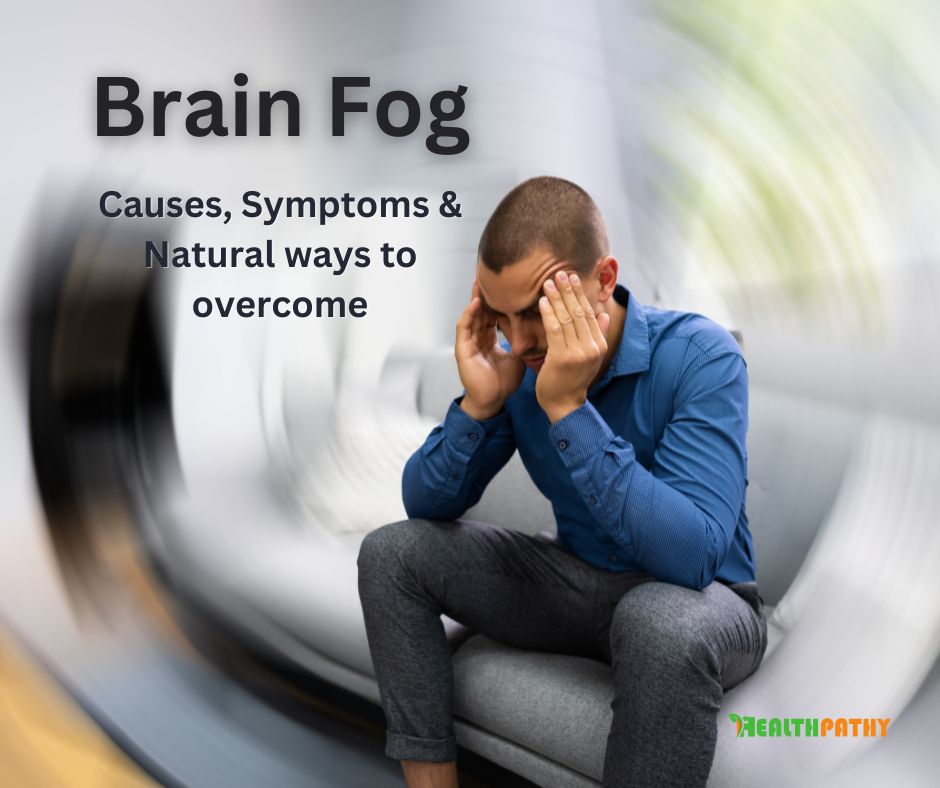In today’s fast-paced world, it’s not uncommon to experience moments of mental cloudiness and forgetfulness. This phenomenon, often referred to as “brain fog,” can significantly impact your productivity, focus, and overall quality of life. In this article, we will explore what brain fog is, its common symptoms, underlying causes, and most importantly, how to overcome it naturally.
What is Brain Fog?
Brain fog is a term used to describe a state of mental confusion and cognitive impairment. It can make you feel like your brain is operating in a dense, hazy cloud. People experiencing it often struggle with memory lapses, difficulty concentrating, and an overall sense of mental fatigue.
Symptoms
Recognizing brain fog is essential for effectively managing it. Common symptoms include:
- Forgetfulness
- Poor concentration
- Mental fatigue
- Confusion
- Slower thinking
- Difficulty finding words
- Lack of motivation
Causes
It can have various underlying causes, including:
- Lack of Sleep: Inadequate sleep can leave your brain fatigued and unable to function optimally.
- Stress: Chronic stress can affect cognitive function and contribute to it.
- Diet: Poor nutrition, including excessive sugar and processed foods, can cloud your mental clarity.
- Medical Conditions: Conditions like chronic fatigue syndrome, fibromyalgia, and autoimmune diseases can be associated with it.
- Medications: Some medications may have cognitive side effects.
Impact on Daily Life
The effects of brain fog extend beyond occasional lapses in memory. It can hinder your performance at work or school, strain relationships, and make everyday tasks feel overwhelming. It’s crucial to address it to maintain a high quality of life.
How to overcome it naturally
Now, let’s explore effective strategies to clear it and regain mental clarity:
Diet and Nutrition for Mental Clarity
Eating a balanced diet rich in brain-boosting nutrients can significantly improve cognitive function. Incorporate foods like fatty fish, berries, and leafy greens into your meals.
Exercise
Regular physical activity increases blood flow to the brain, releasing endorphins that enhance mood and mental clarity. Aim for at least 30 minutes of exercise most days.
Sleep
Prioritize sleep by establishing a consistent sleep schedule and creating a relaxing bedtime routine. Aim for 7-9 hours of quality sleep each night.
Stress Management Techniques
Stress reduction methods such as meditation, deep breathing exercises, and yoga can alleviate the mental strain contributing to it.
Cognitive Training
Mental exercises like puzzles, crosswords, and memory games can help sharpen your cognitive skills.
Herbal Remedies and Supplements
Certain herbs and supplements, such as ginkgo biloba and omega-3 fatty acids, have been found to support cognitive function.
When to Seek Medical Help
If your brain fog persists or worsens, consult a healthcare professional. It could be a symptom of an underlying medical condition that requires attention.
Conclusion
Brain fog can be a frustrating and limiting experience, but it’s not insurmountable. By understanding its causes and implementing lifestyle changes, you can regain mental clarity and lead a more fulfilling life.
FAQs
1. Can stress alone cause brain fog?
Stress is a common contributor to it and can also result from various other factors, including sleep deprivation and poor nutrition.
2. Are there any quick fixes for brain fog?
Quick fixes like deep breathing exercises or a short walk can provide temporary relief, but long-term solutions involve lifestyle changes.
3. Can brain fog be a symptom of a serious medical condition?
Yes, persistent brain fog could be a symptom of an underlying medical issue, so it’s essential to consult a healthcare professional if it persists.
4. How long does it take to clear brain fog with lifestyle changes?
The timeline varies from person to person. Some may experience improvement within weeks, while others may take longer.
5. Are there any supplements that can help with brain fog?
Certain supplements, such as omega-3 fatty acids and adaptogenic herbs, may support cognitive function, but consult with a healthcare provider before adding them to your regimen.
Conquering brain fog involves a holistic approach that encompasses lifestyle changes, stress management, and, when necessary, medical guidance. By taking proactive steps, you can clear the mental haze and unlock your full cognitive potential.
Related Articles

What is Mental Health Awareness
Follow us











